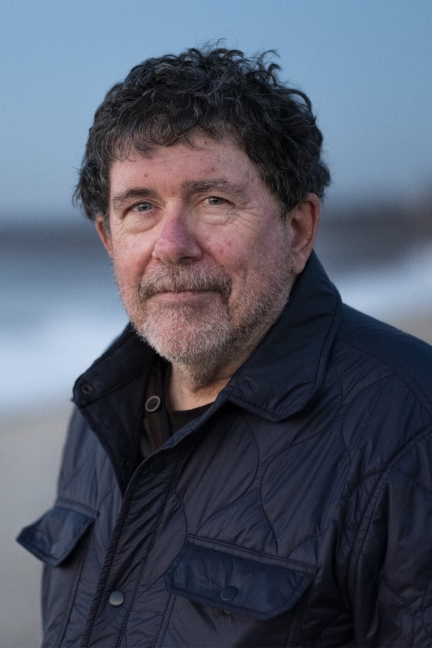by Tom Clavin
From New York Times bestselling author Tom Clavin comes the true story of the Earp brothers, Doc Holliday, and the famous Battle at the OK Corral. Read on for an excerpt.

This image is in the public domain via WikiCommons.
In 1879, Wyatt Earp bade farewell to Dodge City. It had also been time for Bat Masterson and Doc Holliday to move on from the Kansas cattle hub that had been called the “wickedest town in the American West.” The three friends would reunite in Tombstone.
While Bat would not stay away from Dodge City long, in November of that year he had essentially been told it was time to leave. Bat had been the sheriff of Ford County for the previous two years and believed, with justification, that he had done a good job. Jim Herron was a younger resident of Dodge City then, and years later, after he himself had become a lawman in Oklahoma, he recalled, “Bat Masterson was a splendid peace officer, never took it all too seriously, and when it looked like there would be real trouble he had what it took to stop it. He was a young man and seemed to get all the fun out of living that he could.”
Bat aimed to remain in the job for at least two more years … but the voters did not endorse his plan. He was a popular man in some circles, especially in the saloons, and had proved to be an effective sheriff. He and Wyatt were the best of friends and had worked well together at lawing, their efforts complemented by Charlie Bassett, Bat’s brother Jim Masterson, and other city and county peace officers. But Bat had figured he would be reelected handily and had not campaigned, and thus on November 4 he learned he had figured wrong when the Ford County voters elected George Hinkle. Worse, it was not even close: Hinkle collected 404 votes to Bat’s meager 268 votes.

This image is in the public domain via WikiCommons.
To say he was irritated would be an understatement. R. B. Fry reported in The Spearville News, “We hear that Bat Masterson said he was going to whip every s__ of a b____ that worked and voted against him in the county.” This was not true, and in fact in a letter to the editor published in The Dodge City Times the following week, Bat insisted the story was “as false and as flagrant a lie as was ever uttered.”
However, he needed to get out of Dodge and breathe some fresh, apolitical air. After finishing up his few remaining responsibilities, Bat set out for Leadville, Colorado, trading in his badge for the gaming tables. He was confident he could make good money gambling.
Not that it would have mattered, but Bat did not get Wyatt’s vote in that November 1879 election because Wyatt had already left. While he had never intended to make lawing a career, there had to be a few fond memories of the times when he, as an assistant marshal, and Bat, as a deputy marshal and then sheriff, were fast friends and still in their twenties and learning on the job, patrolling the Dodge City streets, having each other’s backs. And being a lawman in the wildest of Kansas cow towns had been a generally good and certainly formative experience for Wyatt.
As Casey Tefertiller observed, Wyatt “had matured markedly from the boy who found himself in trouble in Indian Territory. He had become a most self-assured man who stoutly believed in right and wrong—and in his ability to determine which was which. He loved to be amused, yet almost never laughed; his dour countenance covered an air of supreme confidence in his ability to deal with just about any problem.”
And there were plenty of problems to deal with during his time in Dodge City, thanks to the regular arrivals of thirsty and feisty cowboys finishing the long cattle drives up from Texas. There were times when Wyatt had to draw his six-shooter, but what made him an especially effective lawman was his ability to subdue troublemakers without gunplay. He and Bat Masterson took the “peace” in “peace officer” literally and knew that the way to tame the notorious town was not to outkill the bad guys but to intimidate them, sometimes with the help of a gun barrel to the skull. By the end of the cattle-drive season in 1879, the local calaboose had fewer inhabitants and Boot Hill had become mostly obsolete.
Wyatt foresaw that if he remained in Dodge City, he would become bored. It was no longer all that wicked. He and Bassett and the Masterson brothers and a handful of others had done an effective-enough job the past several years that killings and robberies had become rare. Jailing inebriated cowboys did not make for a stimulating occupation. And there were fewer drunken drovers. Dodge City was no longer the capital of the cow trade, and the cow trade itself was dwindling. Many cowboys were moving on to New Mexico Territory.
This presented Wyatt with a couple of immediate challenges. One was with less lawing to do, his income would dwindle, too. The other was leading a life too uninspiring for an active and ambitious thirty-one-year-old man. “Dodge City,” Wyatt said, “was beginning to lose much of its snap which had given it a charm to men of restless blood.”
But where was the next frontier for such men?

Tom Clavin is a #1 New York Times bestselling author and has worked as a newspaper and web site editor, magazine writer, TV and radio commentator, and a reporter for The New York Times. He has received awards from the Society of Professional Journalists, Marine Corps Heritage Foundation, and National Newspaper Association. His books include The Heart of Everything That Is, Halsey’s Typhoon, and Reckless. He lives in Sag Harbor, NY.
